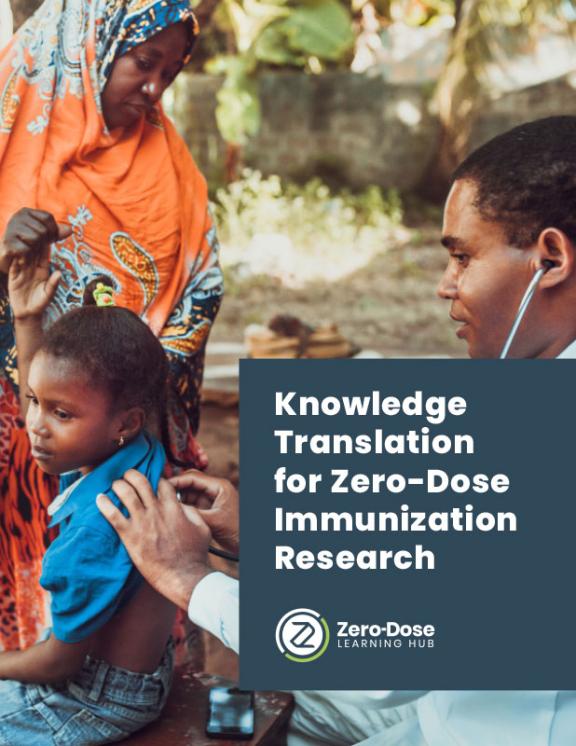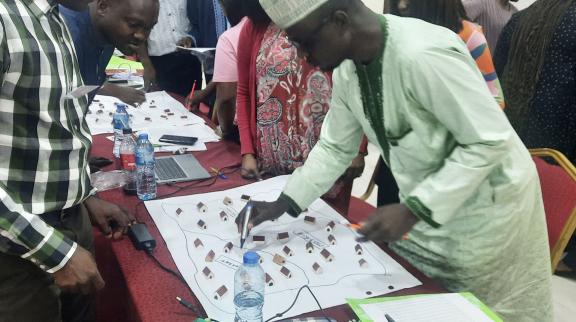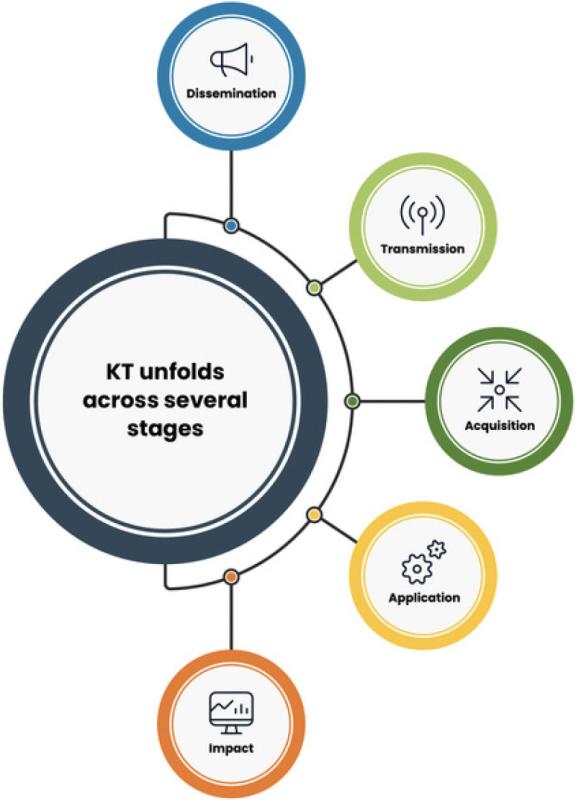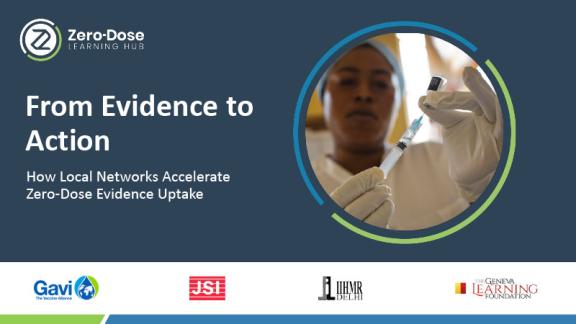Knowledge Translation
Global health research is a powerful tool for informing policies, shaping interventions, and improving health outcomes. However, research findings may not always lead to change. To bridge the gap between knowledge and action, researchers need to implement strategic, well-designed knowledge translation (KT) plans that engage stakeholders to drive measurable impact. Explore the Zero-Dose Learning Hub KT toolkit, country spotlights, blogs, and webinar materials to learn how stakeholders across Bangladesh, Mali, Nigeria, and Uganda are transforming findings into stronger policies, better services, and improved outcomes for zero-dose (ZD) and under-immunized (UI) children. Learn more: ZDLH Knowledge Translation Toolkit Overview

Knowledge Translation for Zero-Dose Immunization Research
The Knowledge Translation for Zero-Dose Immunization Research toolkit is a guide for effectively transforming research findings into practical applications, ensuring that evidence-based knowledge is communicated, adopted, and used. Designed by the JSI-led Zero-Dose Learning Hub for Country Learning Hubs, this toolkit provides a step-by-step process for developing KT plans. It includes guiding questions, links to resources, and strategies for engaging stakeholders, particularly in zero-dose immunization research. The toolkit aims to close the know-do gap, promote evidence-based practices, and drive impactful changes in policies and practices.
Spotlight on Knowledge Translation: Turning Evidence into Impact

Across Bangladesh, Mali, Nigeria, and Uganda, the Zero-Dose Learning Hub is advancing a shared goal: to ensure that evidence doesn't just sit in reports, it drives measurable change. This Spotlight series showcases how each Learning Hub is translating research into action illustrating the diverse strategies used to move through each stage of the KT process—dissemination, transmission, acquisition, application, and impact.
Zero-Dose Blog Series
Bridging the Gap: The Power of Knowledge Translation in Global Health
Global health research findings have the potential to transform lives. However, collecting, analyzing, and publishing data is not enough. For learnings to make a measurable impact, they must be applied to shape policies, guide interventions, and improve health outcomes. Knowledge translation serves as the bridge between research and application.
Turning Research into Action: How to Build an Effective Knowledge Translation Plan
Global health research is a powerful tool for informing policies, shaping interventions, and improving health outcomes. However, research findings may not always lead to change. To bridge the gap between knowledge and action, researchers need to implement strategic, well-designed knowledge translation plans that engage stakeholders to drive measurable impact.
How to Measure the Impact of Knowledge Translation: Practical Tools and Strategies
Measuring KT impact ensures stakeholders not only engage with evidence but use it to shape policies, programs, and services. Tracking reports distributed or event attendees only tells part of the story. The real measure of success is whether KT efforts lead to change—whether policymakers integrate research into policy, health workers refine their approaches, or program managers adjust strategies based on new evidence.
From Research to Action: Measuring Knowledge Translation Efforts
How do you know if your research is making a difference? This briefer introduces practical strategies and indicators to assess whether research is reaching the right stakeholders, being applied, and driving measurable change. This companion to the ZDLH Knowledge Translation Toolkit offers a theory of change, examples, and a quick checklist to help teams embed knowledge translation measurement into their existing MEL frameworks.

From Evidence to Action: How Local Networks Accelerate Zero-Dose Evidence Uptake

How does evidence move from research reports to real policy change and program improvements? This webinar explored how local networks of stakeholders have driven the uptake and use of evidence to strengthen immunization systems. Drawing on knowledge translation and “learning by doing” approaches, speakers highlighted how local engagement practices—such as data sharing, joint planning, and feedback loops—supported understanding, decision-making, and even policy and service delivery changes.